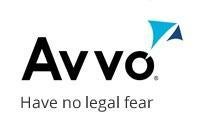How can firms distinguish between inbound and outbound marketing? "Outbound" marketing is best characterized as traditional advertising - the commercials, taglines, billboards and yellow pages ads that all consumer-facing attorneys are long familiar with. It's all about buying the attention of potential customers.
"Inbound" marketing, on the other hand, is designed to earn the attention of potential customers. By providing useful information - and often a lot of it - a business using inbound marketing helps educate and orient consumers, hopefully earning their attention by demonstrating competence, depth and responsiveness. In many ways, inbound marketing is akin to the word-of-mouth networking that attorneys have always engaged in. It's just that blogging and other social media platforms have greatly extended the reach a firm has to demonstrate its competence.
Confusing Social Media with Outbound Marketing
The difficulty, however, is that a great many firms - and the consultants selling marketing services to them - treat social media platforms as outbound marketing. Instead of writing blogs because they appreciate how the medium provides a unique means of displaying one's approach to the law, too many attorneys treat blogging as an empty "content creation" exercise, seeking to ascend the Google rankings or (worse yet) simply promote their firm. Instead of engaging in dialogue on Twitter, they spew out a one-way stream of marketing messages. And instead of using Facebook to personalize themselves (even if ever so slightly), too many rely only on marketing-filled business pages and campaigns for more "likes."
What's going on is an attempt to apply the "buy attention" logic of outbound marketing to the "earn attention" dynamic of inbound marketing. It's not hard to see why; attorneys are familiar with traditional advertising, and most are not natural marketers. And for those that want immediate results, there's this: inbound marketing is a long game. It takes time and diligence, and there's rarely a straight line between the investment made and the return realized. It's far different than buying a TV ad or search campaign and having the calls roll in.
The Action Plan for Effective Outbound Marketing
Avvo’s “Lawyernomics” conference, held in April, featured an action plan for understanding the difference between inbound and outbound marketing. along with improving return on a firm’s business development investment. The action plan for inbound marketing involves a few key components, one of them being approach. It’s critical to bee a real person and engage with the medium selected. Attorneys must treat their blogs and tweets as more than a socioeconomic activity but as an opportunity that allows them to participate and contribute to business circles. Social media currently serves as word-of-mouth 2.0, evidenced by 92% of people trusting recommendations from people they know over any other source. Thus, social media should be conceptualized as a way to connect, earn trust and build a community.
Simultaneously, firms should be careful to smartly insert their practice in their inbound marketing activities. The firm that can convince online viewers they are authorities in an area will generate more clients. Today’s consumers are increasing adept at sniffing out a marketer’s sales pitch, and will gravitate instead toward a thought leadership piece that actually provides value.
Ultimately - and this was emphasized by a number of speakers at Lawyernomics - it's a waste of time and money to treat social media as outbound marketing. It's called "social" media for a reason, and overt promotion will be ignored, or actively shamed. Blogs should be written only by those with a compulsion to write. Twitter is for connecting and sharing - not shouting through a bullhorn. And all of social media requires a willingness to engage, to have a dialogue, perhaps even to expose oneself a bit.
That's not to say the outbound marketing doesn't have its place. There are all sorts of reasons for firms to invest in it, particularly if they are tracking the ROI of these investments. But inbound marketing can be just as effective, if not more so: provided attorneys don't make the mistake of applying the rules of outbound marketing to their use of inbound marketing platforms.



 i
i

